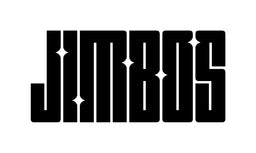How to Clay Bar Your Car the Right Way (Without Scratching the Paint)
If your car feels rough after washing, it's probably time to clay bar the paint. Claying removes embedded contaminants that soap can’t touch—things like overspray, rail dust, and industrial fallout.
Done right, it makes your paint feel glass-smooth and sets the stage for polishing or sealing. But done wrong, it can cause micro-scratches and haze. Here’s how to do it the right way—with pro-level tools and no guesswork.
What Is a Clay Bar (and Why Use One)?
A clay bar is a sticky, rubberized block designed to glide over your paint and grab microscopic contaminants. These are things that even the best soap can’t remove. You’ll know you need to clay when:
- Your paint feels rough after a wash
- You see tiny orange or dark specks (often rail dust)
- You’re about to polish or ceramic coat
What You’ll Need
- The Super Soaper – For the touchless pre-soak method
- Clay bar or clay mitt
- Clay lubricant (or soapy water from Super Soaper)
- Everyday Microfiber Towels
Step-by-Step: How to Clay Bar Safely
1. Pre-Soak the Vehicle (No Pre-Rinse)
Start by foaming or spraying the entire car with The Super Soaper. Let it dwell for 3–5 minutes. This breaks down surface grime without using brushes or mitts—reducing the risk of dragging grit across your paint.
2. Foam Again as Your Clay Lubricant
After rinsing the initial dwell, apply a second layer of Super Soaper foam. This acts as your clay lubricant. It’s slick enough to protect the paint and won’t break the bank like some over-marketed clay lubes.
3. Clay a Panel at a Time
Work one panel at a time. Gently glide the clay or mitt across the surface in straight lines. You’ll feel it grab slightly—then smooth out as contaminants are removed. Don’t scrub. Let the clay do the work.
4. Wipe and Inspect
After each panel, wipe dry with an Everyday Microfiber Towel. The paint should feel smooth. If it still feels gritty, apply more lube and re-clay gently.
5. Repeat Around the Vehicle
Continue this method around the entire car. Pay extra attention to horizontal panels (hood, roof, trunk) where contamination builds up fastest.
Pro Tips
- Break your clay bar in half—if you drop it, toss it.
- Use a clay mitt for faster coverage on large vehicles.
- Don’t use a dry towel or dry clay—always keep the surface lubricated.
- If the surface starts squeaking or sticking, reapply foam or lube immediately.
What to Do After Claying
Now that your paint is decontaminated, you’ve got a perfect surface for:
- Polishing – Remove swirls or oxidation with a one-step polish like our upcoming Picture Perfect Polish.
- Ceramic Coating – Apply Tough As Shell for slick protection and crazy water beading.
Watch our video on this:
Claying your car is one of the best ways to instantly improve paint feel and prep for long-term protection. Just skip the old-school rinse bucket method. Pre-soak, lube well, and glide gently—and your paint will feel like glass without a single scratch.
🧼 Products Featured:
- The Super Soaper – Pre-soak and clay lubricant (or Amazon)
- Everyday Microfiber Towels
- Tough As Shell Ceramic Spray
Want glass-smooth paint? Clay it the right way.



